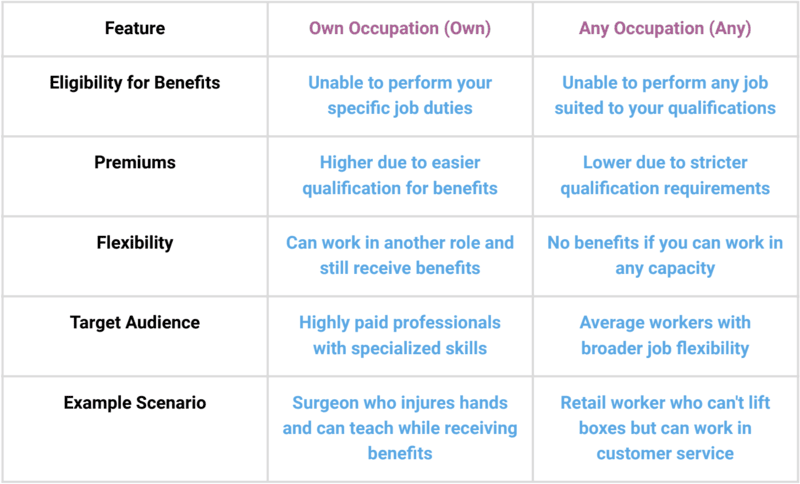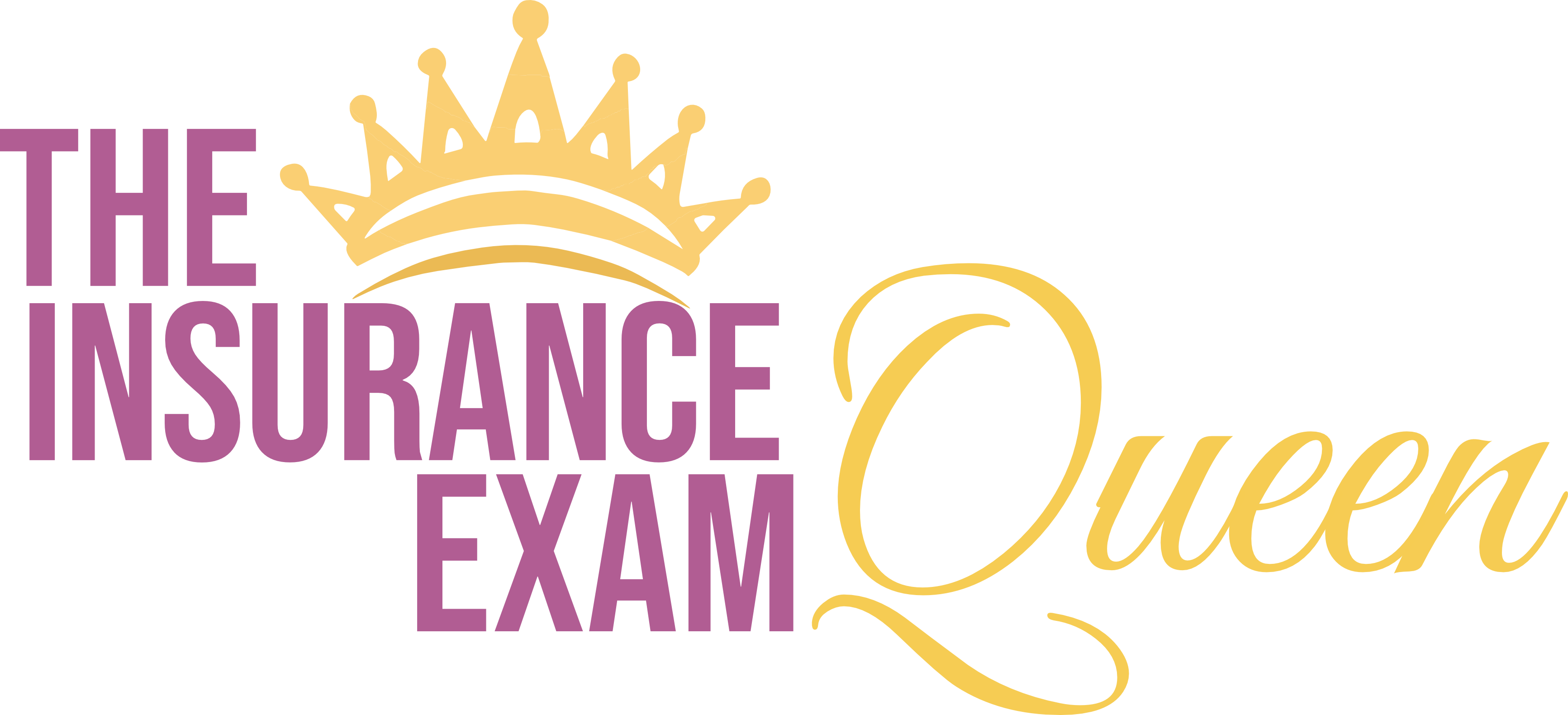“Accidental Bodily Injury” Vs. “Accidental Means”
Accidental bodily injury will cover you for any type of injury that comes from any accident. You want your policy to be this way, since it’s the most liberal definition and covers more.
A policy that is accidental means, says that in order for them to cover the injury, what caused the injury needs to be an accident too.
For example, if you CHOOSE to jump out of a plane, any injuries from that are NOT SEEN as accidental.
Any Vs. Own Disability
Total Disability at its simplest definition means that you are disabled enough that you cannot work.
Now the definition of “Cannot Work” can mean different things depending on the type of policy and insurer.
What if you can no longer work the job you have right now? But you could get another job somewhere else?
If my current job requires the use of my legs and I lose my legs/paralyzed, could I get another job that doesn’t require the use of my legs? Yes!
This is how the definition of “Cannot Work” is flexible.
Own Policy says: I cannot work my OWN job, but I could possibly work another.
Any Policy says: I cannot ANY job, at all.
This is where we see that:
Own is LESS restrictive
Any is MORE restrictive
Own is LESS restrictive because all I must prove is that I cannot work my OWN, one, single job that I have right now.
Any is MORE restrictive because I must prove that I cannot work ANY possible job, ANY where.
Imagine this, you get hurt and are now disabled and call your insurer.
If you have an Own Policy, they will ask one question- Does this injury prevent you from working your current job? Yes? Here’s a check.
If you have an Any Policy, they will ask, Does this injury prevent you from working your current job?Yes? OK, what about any other job? Could you be a Walmart greeter? Yes? Okay well then go do that, no check for you!
Own is clearly the better policy, so why would you choose any? Well, why do people go to Walmart? It’s a cheaper option!
By having Any and Own as options, it allows more people to buy insurance and you pay for what you want.
Any makes it HARDER to get a policy payout, but at least it’s there in the worst-case scenario of being totally and utterly disabled that you cannot work ANY where.
Own is EASIER to get a policy payout, but you’re going to be paying for it. Own can be double the price of an Any policy.
Usually, highly paid people will get Own. If a high paid surgeon injured his hands and cannot do surgery anymore, do you think he would want to go get a lower paying job? No, he would want a check as soon as he cannot do his job and he’ll pay a high premium for that.
Any is good for your average worker who doesn’t have the high-level qualifications and could just as easily get a similar paying job elsewhere. Oh, you’re a retail worker, who got hurt and now you can’t lift heavy boxes? Go work at a customer service call center where there is no lifting.
Now the way they talk about the policies is a little tricky.
Any says, “will only provide benefits when the insured is unable to perform any of the duties of the occupation for which they are suited by reason of education, training, or experience.”
When we read that we go, “oh they are educated like a doctor, so this is like when the teacher said an educated doctor would get this policy.” And now you have the meaning of them swapped. Whoops!
We must remember that the statement “suited by reason of education, training, or experience” goes with ANY and what they are trying to get at by that statement is that they DO NOT CARE ABOUT PREFERENCE.
Under an Any policy, they do not care if you “prefer” to be a Walmart Greeter or not. If you can work ANYwhere, then go work, because you’re not getting a check from us.
Another thing to note is that an Own policy allows you to collect a check AND still get another job.
Since Own pays out as soon as you cannot do your own job, it doesn’t matter if you can or do work anywhere else.
That surgeon who injured his hands? He is collecting an Own check since he cannot do surgeries anymore and since he has nothing to do all day, he decided to go teach Medical school! He will continue to get a disability check while teaching!
Now, it may not be in your text/not required to know this, but typically Own policies have a 2-year time limit. They will pay you for 2 years after you cannot do your OWN job, but at the end of 2 years the policy will switch to Any, and if they can work any other job, the checks will stop.

Recommended: Gold
The GOLD Course is ALWAYS the recommended class series for all students as it teaches the material in more depth. Over 30 hours of the most in depth classes with a more intensive teaching of the topic. Learn more about P&C GOLD Learn more about L&H GOLD
Share the Post
Click to share the post to your network





